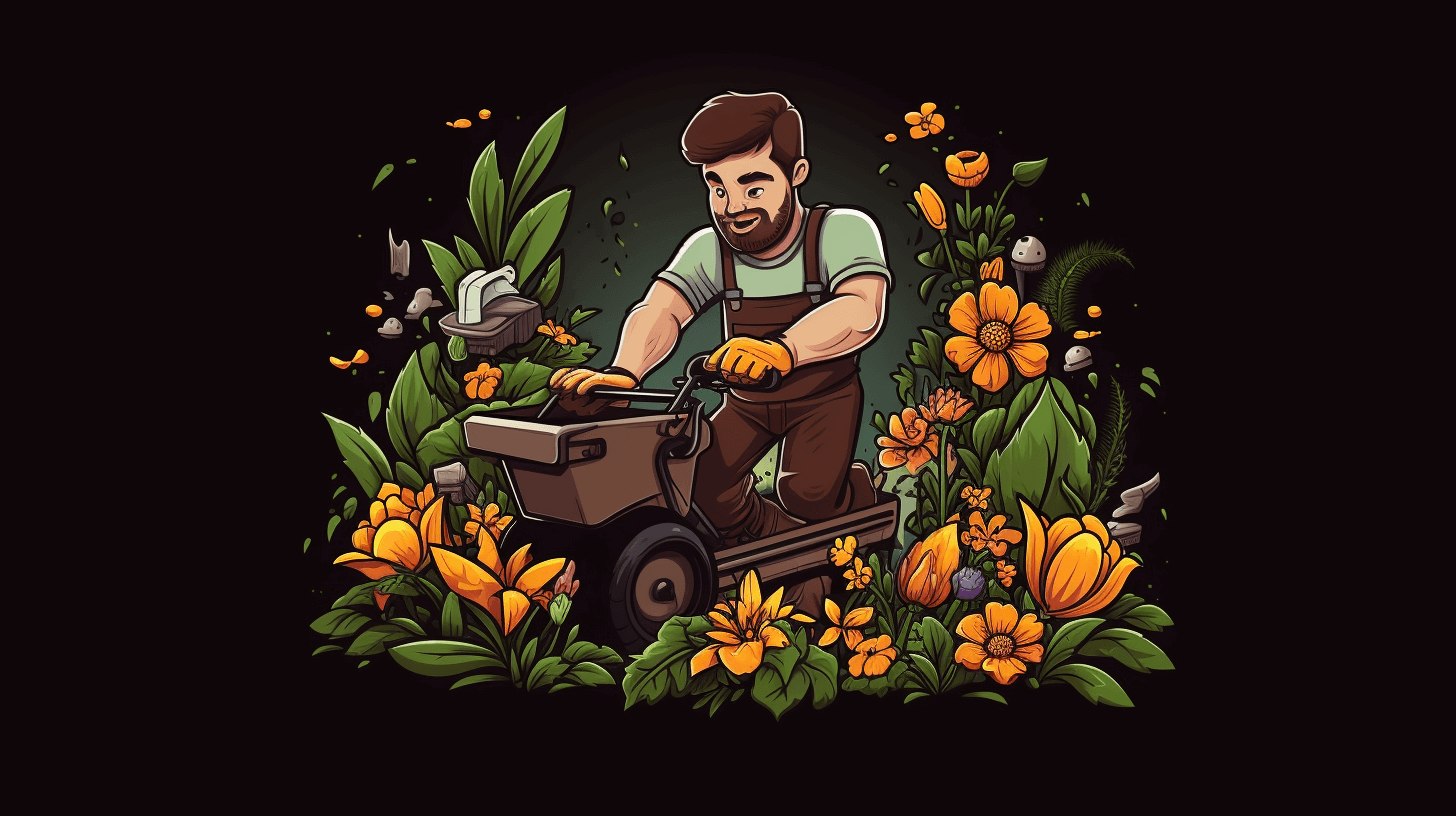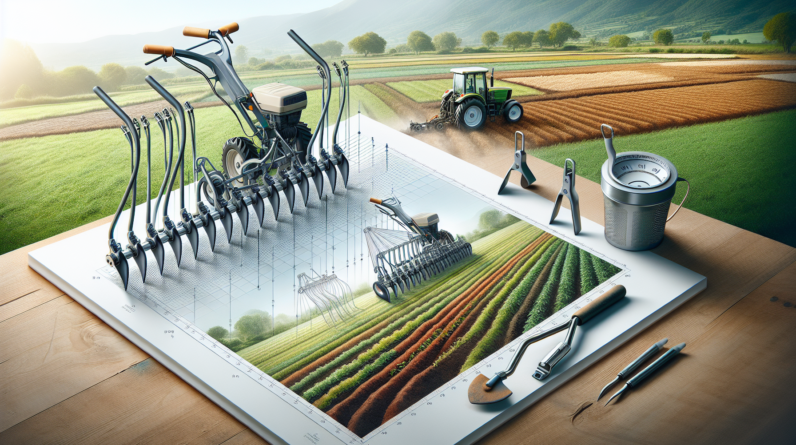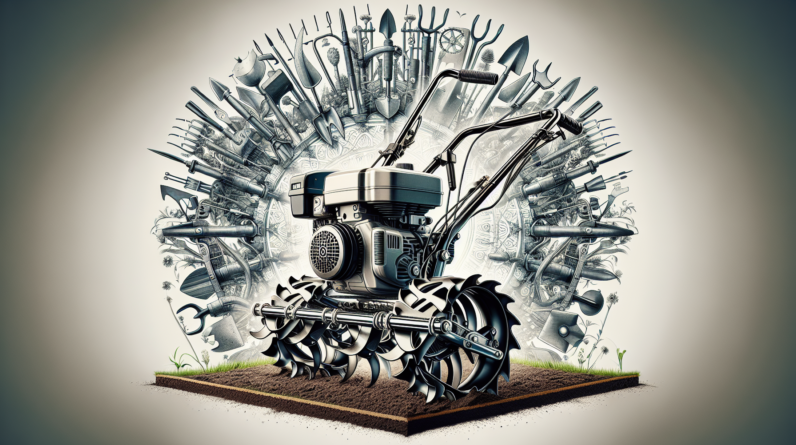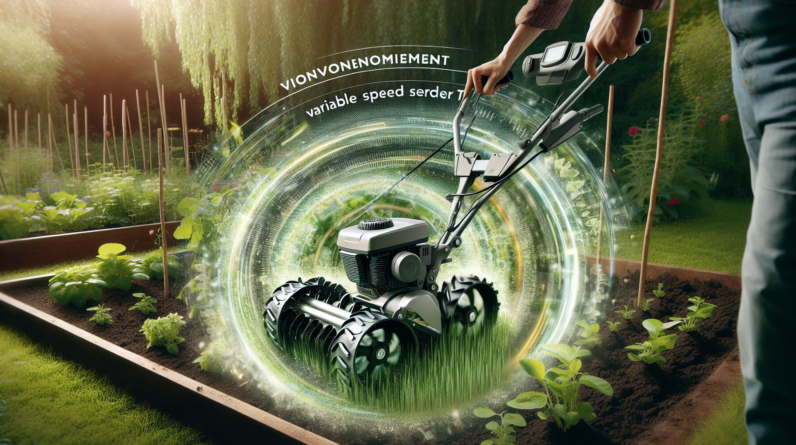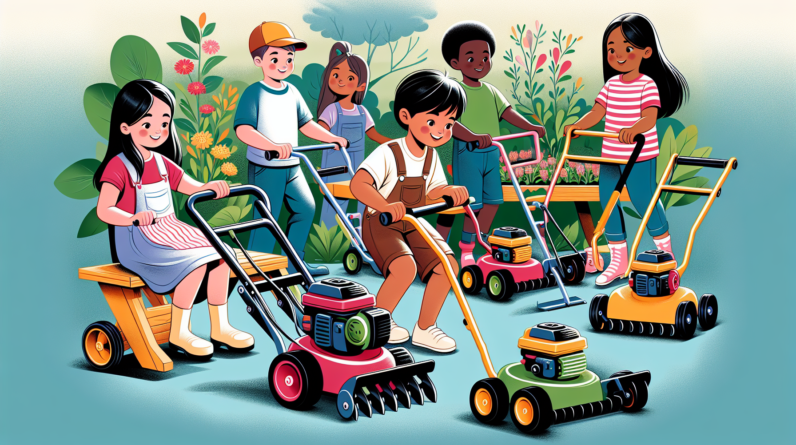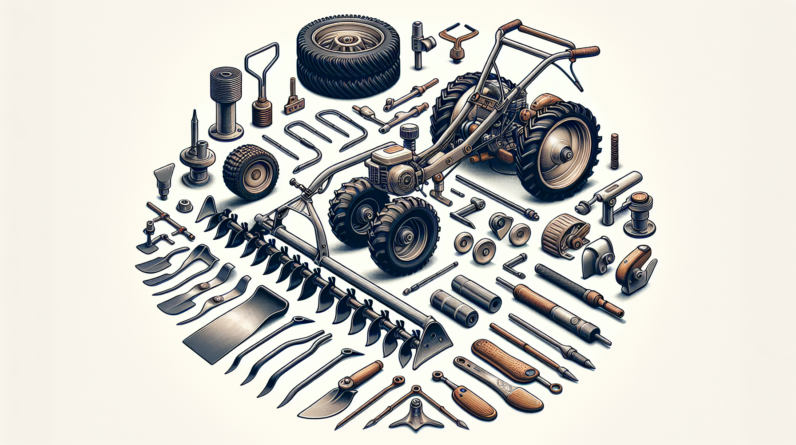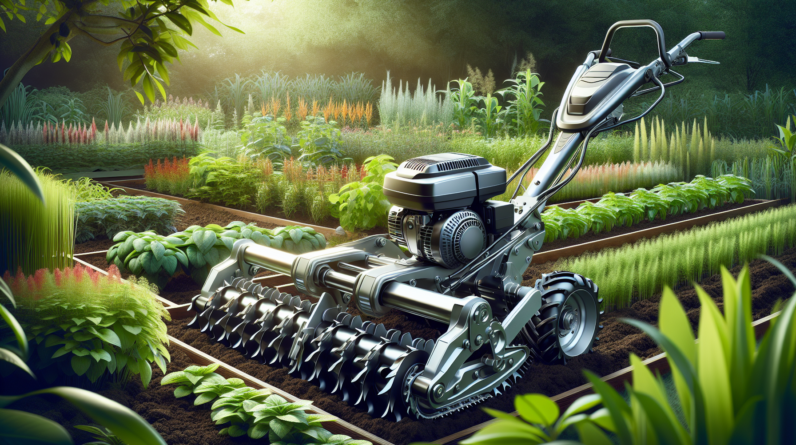
Are you tired of spending countless hours hand tilling your garden? Look no further than hydraulic garden tillers, the revolutionary new tool that will make your gardening experience a breeze. With their powerful hydraulic systems, these tillers are capable of effortlessly breaking up and loosening compacted soil, making it easier for you to plant and grow your favorite vegetables, flowers, and herbs. Say goodbye to sore muscles and hello to a beautiful and productive garden with hydraulic garden tillers.
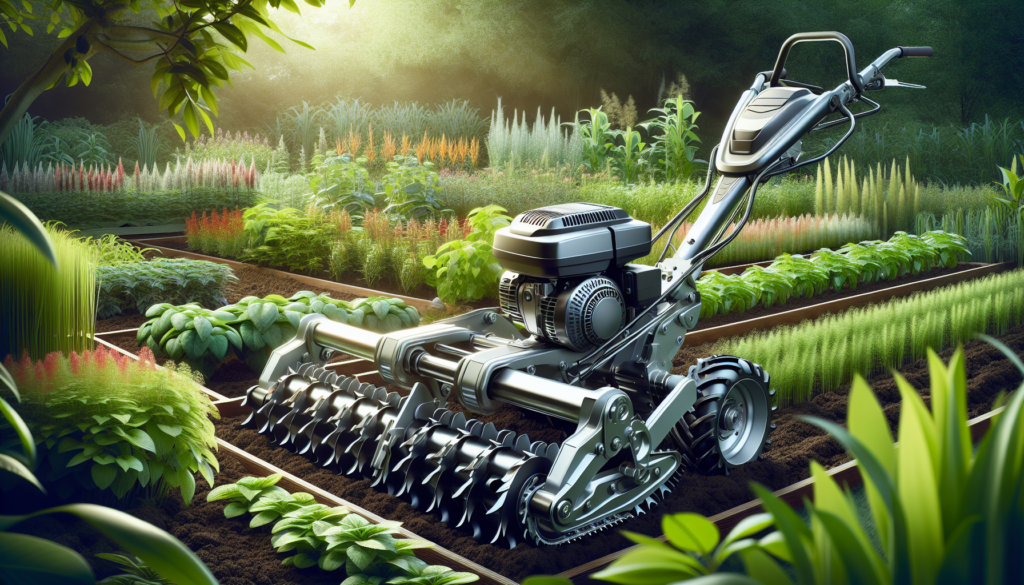
Overview of Hydraulic Garden Tillers
What are hydraulic garden tillers?
Hydraulic garden tillers are powerful gardening tools that are used to prepare soil for planting. These machines use hydraulic systems to provide the necessary power for tilling the soil, making the job easier and more efficient. They come in different sizes and configurations to suit various gardening requirements.
Advantages of using hydraulic garden tillers
There are several advantages to using hydraulic garden tillers. One of the main benefits is the power they provide, which allows for effective tilling even in compacted or tough soil. The hydraulic system also enables efficient performance, making the task quicker and less physically demanding. Additionally, hydraulic garden tillers offer versatility in gardening tasks, allowing for various attachments and accessories to be used.
Types of hydraulic garden tillers
There are different types of hydraulic garden tillers available on the market. Rear-tine tillers are popular and have their tines located at the back of the machine, providing more digging power. Front-tine tillers, on the other hand, have their tines located in the front, making them easier to maneuver. There are also compact hydraulic garden tillers designed for smaller gardens and large hydraulic garden tillers for commercial or extensive gardening needs.
Choosing the Right Hydraulic Garden Tiller
Considerations before buying
Before purchasing a hydraulic garden tiller, there are a few considerations to keep in mind. Firstly, assess the size and type of garden you have. The tiller should be suited for the area you will be working on. Secondly, consider the power requirements. Ensure that the hydraulic garden tiller has enough power to effectively till the soil in your garden. Lastly, think about the attachments and accessories that may be necessary for your specific gardening tasks.
Size and power requirements
Selecting the right size and power requirements for a hydraulic garden tiller is crucial for optimal performance. For small or residential gardens, a compact hydraulic garden tiller with lower power may be sufficient. Medium-sized gardens may require a more robust tiller with moderate power. For large or commercial gardens, a larger hydraulic tiller with higher power capabilities is recommended.
Tiller attachments and accessories
The versatility of hydraulic garden tillers allows for various attachments and accessories to be used. Some common attachments include furrowers, which help create furrows for planting, and de-thatchers, which remove dead grass and debris from the lawn. Other accessories like aerators, plows, and cultivators can also be beneficial for specific gardening needs. Consider the attachments and accessories that would be useful for your garden and ensure compatibility with the chosen hydraulic garden tiller.
Benefits of Hydraulic Garden Tillers
Time and labor-saving benefits
One of the significant benefits of using hydraulic garden tillers is the amount of time and labor they save. These machines are powerful and efficient, enabling faster tilling than manual methods. With a hydraulic garden tiller, you can cover larger areas in less time. This allows you to dedicate more time to other gardening tasks or simply enjoy your well-prepared soil.
Improved soil and plant health
Hydraulic garden tillers contribute to improved soil and plant health. By effectively tilling the soil, these machines help break up compacted dirt, ensuring better aeration and water absorption. This leads to healthier root growth and improves overall plant growth and productivity. Furthermore, tilling helps mix organic matter into the soil, promoting nutrient availability and enhancing soil structure.
Versatility in gardening tasks
Hydraulic garden tillers offer versatility in gardening tasks due to their compatibility with various attachments and accessories. Depending on the specific job at hand, you can switch out different implements to suit your needs. From planting rows to cultivating the soil, hydraulic garden tillers can handle a wide range of gardening tasks effectively. This versatility allows for increased efficiency and convenience in your gardening endeavors.
How Hydraulic Garden Tillers Work
Understanding hydraulic systems
To comprehend how hydraulic garden tillers work, it’s important to understand hydraulic systems. Hydraulic systems use fluid pressure to transfer force and perform mechanical work. In the case of hydraulic garden tillers, a hydraulic pump generates pressure by pushing the hydraulic fluid through a system of hoses and valves. This pressure is then utilized to power the tiller’s various components and mechanisms.
Components and mechanisms of hydraulic garden tillers
Hydraulic garden tillers consist of several essential components and mechanisms. The hydraulic pump, as mentioned earlier, is responsible for generating the necessary pressure. This pressure is then directed to hydraulic motors that drive the tines, which are the blades responsible for digging into the soil. The tiller’s frame and wheels provide stability and maneuverability, allowing you to navigate through your garden effortlessly.
Operational processes
The operational processes of hydraulic garden tillers involve turning the machine on, adjusting the tilling depth and speed, and maneuvering the tiller in the desired direction. Once the tiller is powered on, the hydraulic system allows the hydraulic fluid to flow, providing the necessary force to rotate the tines and till the soil. The user can then adjust the tilling depth and speed based on their preferences and the requirements of the task at hand.
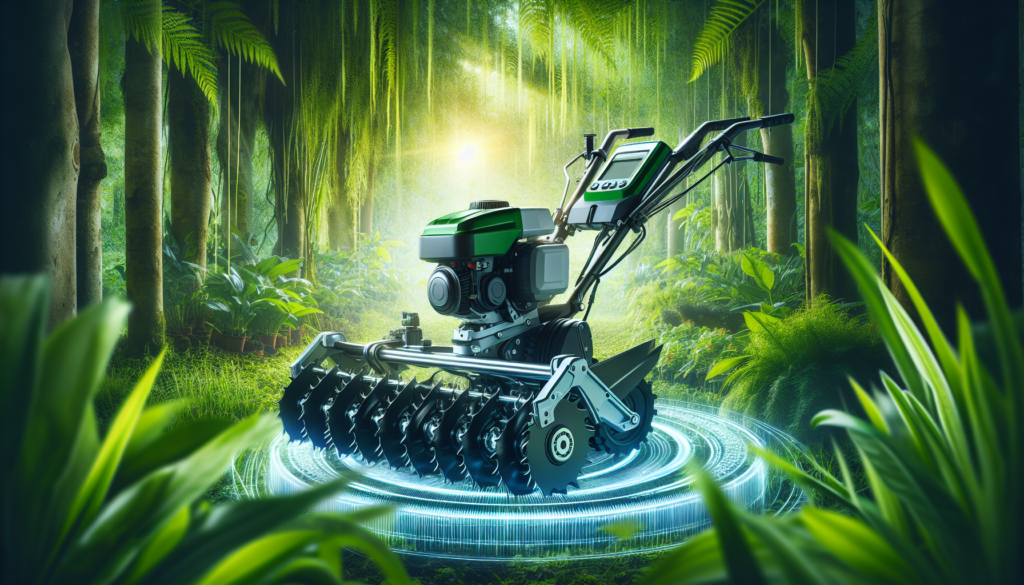
Maintenance and Troubleshooting
Regular maintenance practices
Regular maintenance is important to keep your hydraulic garden tiller in optimal condition. Some maintenance practices include checking and changing the hydraulic fluid regularly, inspecting and tightening all bolts and connections, cleaning and greasing the tines, and inspecting the engine for any damage. It is also crucial to follow the manufacturer’s guidelines and recommendations for specific maintenance tasks.
Common hydraulic garden tiller problems
Occasionally, hydraulic garden tillers may encounter certain issues. Some common problems include hydraulic fluid leaks, engine starting issues, dull or damaged tines, and belt or chain malfunctions. These problems can be caused by various factors such as wear and tear, incorrect operation, or lack of maintenance. Identifying the problem correctly is the first step in troubleshooting and resolving the issue.
Troubleshooting and repair tips
When troubleshooting hydraulic garden tiller problems, it is recommended to consult the manufacturer’s manual or seek professional assistance if needed. However, there are a few troubleshooting and repair tips you can try yourself. These include checking for loose connections and tightening them, inspecting the tines for damage and replacing if necessary, and ensuring proper lubrication of moving parts. If the problem persists or is beyond your expertise, it is best to consult a professional.
Safety Precautions
Basic safety guidelines
It is important to follow basic safety guidelines when operating a hydraulic garden tiller. Always read and understand the manufacturer’s safety instructions before use. Make sure to wear appropriate protective gear such as safety glasses, gloves, and sturdy footwear. Avoid wearing loose clothing or jewelry that could get caught in the machine. Keep bystanders, especially children and pets, at a safe distance while operating the tiller.
Protective equipment and clothing
Protective equipment and clothing play a vital role in ensuring safety while using a hydraulic garden tiller. Safety glasses protect your eyes from debris and flying objects. Gloves provide protection and improve grip while handling the machine. Sturdy footwear with slip-resistant soles offers better stability. It is crucial to invest in quality protective gear to minimize the risk of accidents or injuries.
Operating precautions
When operating a hydraulic garden tiller, there are a few operating precautions to keep in mind. Start by familiarizing yourself with the controls and functions of the tiller. Avoid tilling steep slopes or uneven terrain that may cause instability. Always maintain a firm grip on the handles and operate the tiller at a safe speed. Never reach into or attempt to service the machine while it is running.
Comparison with Other Types of Garden Tillers
Hydraulic vs. electric tillers
Hydraulic garden tillers and electric tillers both have their advantages and considerations. Hydraulic tillers tend to be more powerful and suitable for larger gardening tasks. They are not limited by electrical cords, allowing for greater flexibility in movement. On the other hand, electric tillers are generally more lightweight and easier to maneuver. They are typically better suited for smaller gardens or areas where power outlets are easily accessible.
Hydraulic vs. gas-powered tillers
When comparing hydraulic garden tillers with gas-powered tillers, it is important to consider factors such as power, convenience, and emissions. Hydraulic tillers offer significant power and are suitable for heavy-duty tilling. They are generally more fuel-efficient and produce fewer emissions compared to gas-powered tillers. However, gas-powered tillers provide the advantage of portability and do not require hydraulic systems or motors.
Hydraulic vs. manual hand tillers
Manual hand tillers, also known as cultivators, differ from hydraulic garden tillers in terms of power and efficiency. Hydraulic tillers rely on hydraulic systems and motors for power, making them much more powerful and efficient than manual hand tillers. Manual hand tillers require physical effort and are better suited for small gardening tasks or maintaining existing planting beds. Hydraulic tillers are more suitable for larger areas and initial soil preparation.
Hydraulic Garden Tillers for Different Garden Sizes
Small or residential gardens
For small or residential gardens, a compact hydraulic garden tiller is usually sufficient. Look for a tiller that is lightweight, easy to maneuver, and has adjustable tilling width and depth. These tillers should be capable of cultivating small plots, flower beds, and vegetable gardens, providing optimal soil preparation for planting and enhancing overall garden health.
Medium-sized gardens
Medium-sized gardens require a hydraulic garden tiller with slightly more power and capability. These tillers should be able to handle larger areas, such as medium-sized vegetable gardens or flower beds. Look for a tiller with a wider tilling width, adjustable depth, and sturdy construction to ensure longevity and consistent performance.
Large or commercial gardens
Large or commercial gardens demand heavy-duty hydraulic garden tillers with high power and performance. These tillers should be capable of tilling extensive areas efficiently and effectively. Look for tillers with large tilling widths, powerful engines, and durable construction. It is also essential to ensure that the tiller is equipped with features such as adjustable tilling depth and various attachments for maximum versatility.
Hydraulic Garden Tillers and Eco-Friendly Gardening
Reduced fuel consumption
Hydraulic garden tillers are more fuel-efficient compared to other types of tillers, making them a greener choice for eco-friendly gardening. The hydraulic systems employed in these tillers utilize power more efficiently, reducing fuel consumption and emissions. This not only helps conserve natural resources but also minimizes the environmental impact of gardening activities.
Lower noise pollution
Another benefit of hydraulic garden tillers in eco-friendly gardening is the reduction of noise pollution. Compared to gas-powered tillers, hydraulic tillers tend to produce less noise during operation. This is especially important in residential areas where noise regulations may be in place. By using a hydraulic garden tiller, you can tend to your garden without disturbing the peace and tranquility of your surroundings.
Minimal soil disruption
Hydraulic garden tillers promote minimal soil disruption, which is beneficial for maintaining a healthy and balanced ecosystem. These tillers are designed to till the soil efficiently without excessively disturbing the natural structure and composition. By minimizing soil disruption, hydraulic garden tillers help preserve essential microorganisms and organic matter, ensuring long-term soil fertility and sustainability.
Popular Hydraulic Garden Tiller Brands
Brand A
Brand A is a reputable manufacturer of hydraulic garden tillers known for their reliability and performance. They offer a wide range of models suited for different garden sizes and requirements. Brand A’s hydraulic garden tillers are lauded for their durability, ease of use, and versatility. With a reputation for quality, Brand A is a popular choice among gardeners seeking efficient and effective tilling solutions.
Brand B
Brand B is another well-established brand in the hydraulic garden tiller market. They specialize in high-powered tillers designed for commercial and large-scale gardening needs. Brand B’s hydraulic garden tillers are known for their robust engines, superior performance, and excellent maneuverability. Gardeners who require heavy-duty tillers often turn to Brand B for their reliability and long-lasting durability.
Brand C
Brand C offers a range of hydraulic garden tillers that cater to both residential and commercial needs. With a focus on versatility and user-friendliness, Brand C’s tillers are designed to make gardening tasks easier and more efficient. These tillers are equipped with adjustable features, powerful performance, and durable construction. Gardeners looking for a reliable and feature-packed hydraulic garden tiller often consider Brand C as a top choice.
